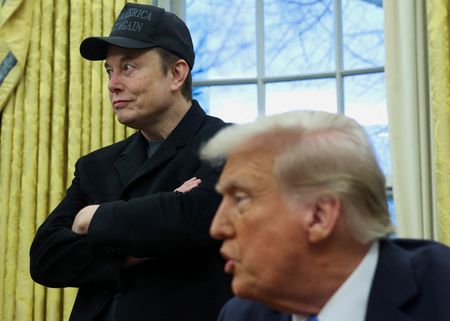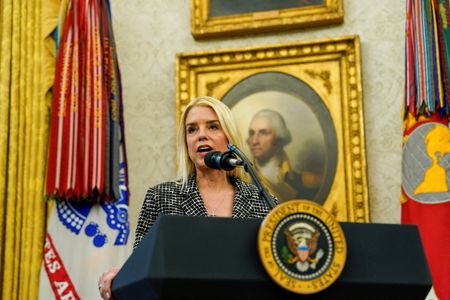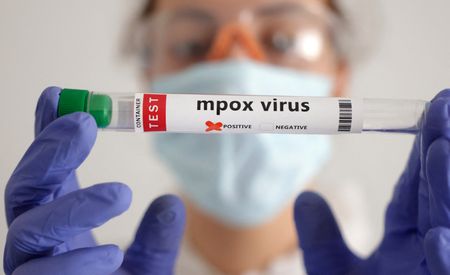By Leah Douglas, P.J. Huffstutter and Tom Polansek
(Reuters) – The Trump administration’s dismantling of the U.S. Agency for International Development has halted work at a network of farm research laboratories at land grant universities in 13 states, according to six lab directors.
The lab closures are another hit to U.S. agriculture from President Donald Trump’s overhaul of the federal government, by blocking research work designed to advance seed and equipment technology and develop markets abroad for U.S. commodities.
Farmers have already seen disruptions to government food purchases for aid, and to agricultural grant and loan programs.
Land-grant universities were founded on land given to states by the federal government.
“For U.S. farmers, this is not good,” said Peter Goldsmith, who leads the University of Illinois’ Soybean Innovation Lab, one of the affected labs.
The State Department did not respond to a request for comment.
The network of 17 laboratories was funded by USAID through a program called Feed the Future Innovation Labs, and pursued research in partnership with countries such as Malawi, Tanzania, Bangladesh, and Rwanda, the lab directors said.
Their research helps U.S. farmers because programs conducted overseas can develop production practices that may be useful in the U.S. or provide advance warning of pests, directors said.
“It really reduces our capacity to help farmers fight pests and diseases and help American farmers prevent incursions,” said David Hughes, director of the USAID Innovation Lab on Current and Emerging Threats to Crops at Penn State University.
One study that has been halted was working to control a viral disease spread by an aphid that was hurting banana crops in Tanzania, Hughes said.
David Tschirley, who runs an agency-funded lab at Michigan State University and is chair of the Feed the Future Innovation Lab Council, which represents the lab network, said about 300 people are employed by the labs, and they have as many as 4,000 collaborators abroad.
“It presents an American face to the world that is a very appreciated face,” he said, adding that such work benefits national security.
STOP-WORK ORDERS
All 17 labs received stop-work orders at the end of January after Trump froze most foreign aid, and have not received additional guidance or responses to queries from the State Department, which oversees USAID, Tschirley said. Some labs are petitioning their host universities to cover some costs, with mixed success, the lab directors said.
Michigan State is allowing Tschirley’s lab to keep employees based on the expectation USAID will eventually approve the costs, he said.
Goldsmith said he laid off all 30 staff at his lab last week, and plans to close it on April 15. He said his lab has provided technical assistance to farmers planting soy in African countries and to companies building soy-processing plants.
Some of that lab’s partners have included agribusiness companies Bayer, Corteva, BASF, and Archer-Daniels-Midland, according to a 2020 report on the lab’s website.
Bayer, one of the world’s biggest producers of crop seeds and chemicals, said it was assessing the funding halt. The other companies declined to comment or did not respond to questions.
Some of Trump’s other actions to reshape government have also affected U.S. farmers. Tens of millions of dollars of U.S. commodity purchases, for example, were temporarily halted after the Trump administration’s January 24 order freezing most foreign aid.
Farmers across the country also say they are not receiving payments from a range of federal farm programs under Trump’s directive to freeze federal loans and grants, which has been blocked in court.
(Reporting by Leah Douglas in Washington and P.J. Huffstutter and Tom Polansek in Chicago; Editing by Rod Nickel)










